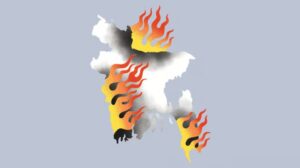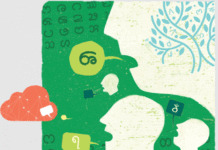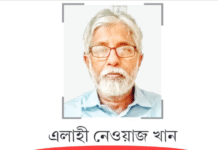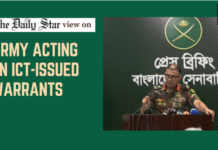
The ferocity of the crisis this month in Bangladesh is unprecedented during the rule of Sheikh Hasina, the country’s ever-more-authoritarian prime minister. It was triggered when university students came out in protest against a jobs quota in the civil service. They clashed with police and the ruling party’s thuggish student wing and seized control of the streets of the teeming capital, Dhaka. They also stormed the state broadcaster, while violence spread to nearly half the country’s 64 districts. In response, the government sent in armed troops and, from July 20th, imposed a nationwide curfew enforced by a shoot-to-kill order. It also shut down internet services, cutting off a country of 171m from the world and from itself until a partial restoration on July 23rd.
By then, the draconian moves had restored a semblance of calm to Dhaka. For two (then seven) hours each day, residents could emerge to run essential errands. Yet the past few days have left nearly 200 protesters and bystanders dead (possibly more) and thousands injured, for which many Bangladeshis want an accounting that Sheikh Hasina is in no mood to give. It is her biggest test in 15 years of uninterrupted rule.
The authorities have charged at least 61,000 people over the recent days’ violence, including many from a beleaguered opposition that Sheikh Hasina has always blamed for everything that goes wrong in the country. Even as the clampdowns on communications and movement threaten the economy, the prime minister only calls angrily for retribution against the “criminals” behind the protests. But her vengeful and uncompromising reaction to the crisis misjudges the mood among a large segment of the population—and her own hold on reality and power.
The grievance that brought the students to the streets came in June, when the High Court ordered the government to restore a long-dropped quota setting aside 30% of jobs in government for family members of veterans who had fought in the country’s bloody war of independence from Pakistan in 1971. This is a particularly egregious example of jobs for the boys: consider that the roots of the ruling party, the Awami League (al), are in the independence movement and that Sheikh Hasina makes much of being the daughter of Sheikh Mujibur Rahman, who headed the movement and was the new country’s leader until his assassination in 1975.
This means that the quota is tailored to benefit al members. Two-fifths of young Bangladeshis do not have regular employment, so it hit a nerve. Around 400,000 graduates already have to compete every year for just 3,000 government jobs in a precarious employment market.
At least the government had the good sense to hurriedly ask the country’s top court to overrule the lower one. On July 21st the Supreme Court cut the quota to 5%. Yet students’ grievances are about much more than the quota system. Nearly every job opportunity for an educated young Bangladeshi, from primary-school teacher to policeman to management trainee, runs through the al. Meanwhile, at universities and on the streets the al’s student wing, the Bangladesh Chhatra League, acts as a murderous vigilante force. On campus it controls not just student politics but even the distribution of scarce rooms for undergraduates. It is deeply despised. Calls for it to be disbanded will not go away.
Neither will growing questions about the durability of Sheikh Hasina’s regime. During the past 15 years she has fostered big infrastructure development, but she has faced accusations of rigging elections, undermining state institutions and presiding over rampant corruption among the al and its business cronies. Now her response to those who voice any criticism of her rule is to accuse them of being “Razakars”—collaborators with Pakistan’s army of occupation in 1971. That suggests how unmoored from reality the 76-year-old prime minister has become. Even allies concede in private that she is making mistakes. Yet no minister dares to point that out to her.
All this means that the decay emanating from the ruling party is growing as pungent as the stench of tear gas and burning vehicles that wreathed the streets. The al will probably survive for now, even as reports of government-affiliated violence grow. But the crisis, says one insider, has deterred a whole young generation of potential politicians from serving their country so long as the party is in power. The longer-term repercussions of the crisis for the al and for Sheikh Hasina may prove calamitous. ■
The Economist









